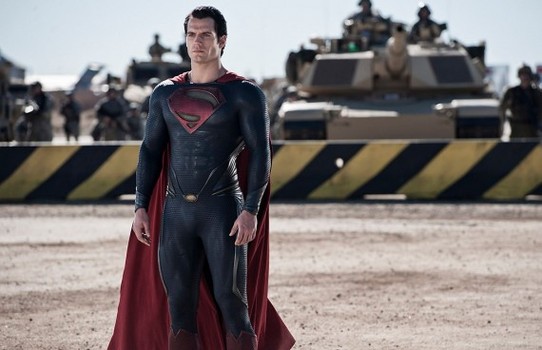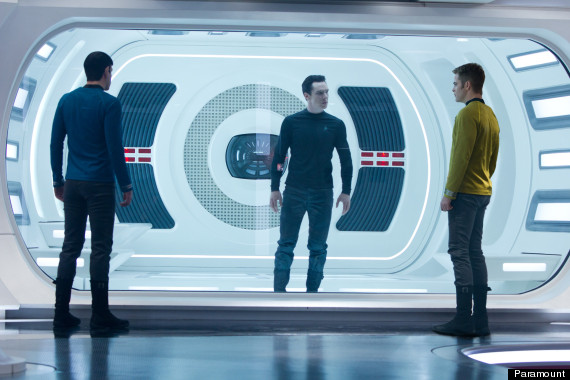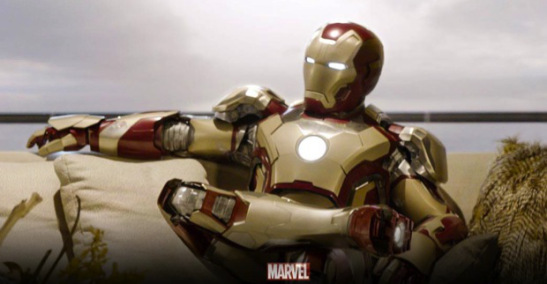Superman has always had a shaky history making it to the big screen. The character has single-handedly been responsible for some of the most beloved superhero films of all time, as well as some of the absolute worst. Undoubtedly, there have been more iterations of this character on both the big and small screens than any other superhero, but is it because no one can get the character right? Hardly. The Richard Donner-directed, Christopher Reeve-starring Superman:The Movie (1978) is rightfully considered a classic and is still considered a gold-standard by which most superhero movies are judged by today.
The problem with Superman is that he’s a somewhat out-of-date character who constantly needs to redefined to appeal to modern audiences. Superman was created in a more innocent, pre-WWII period in comic publishing when readers were able to accept the idea of a super-strong man solving crime in tights and a cape. In the years since, as the world had become a harsher place, more grounded characters like Batman and Spiderman eclipsed the Man of Steel in popularity, and have found an easier road to box-office success. Superman has had to re-adapt more times than these characters who stay unchanged across history, and this has become the common thread in his cinematic adventures. Ever since the Christopher Reeve era, we’ve seen no less than 6 new Superman reboots in film and television; 2 on the big screen, 2 on the small screen, and 2 in animation. Following 2006’s lackluster Superman Returns, we have another, more grittier reboot of the Superman franchise in 2013’s Man of Steel. Does the film mark a triumphant return of the character, or does it reinforce the character’s irrelevance in modern times? The former is thankfully what I experienced after watching the movie; for the most part.
The story covers familiar ground for anyone who is a fan of Superman. It’s pretty much the origin story retold again, but with some significant departures here and there. In this version, we see Jor-El (Russell Crowe) sending his infant son Kal-El to Earth as the planet Krypton is in it’s final days. At the same time, the vengeful General Zod (Michael Shannon) is sentenced to exile for attempting a military coup on Krypton. Zod vows to escape his imprisonment with the intent of finding the son of the man who betrayed him, Jor-El. Young Kal-El makes it safely to Earth and grows up on a farm raised by the Kents (Kevin Costner and Diane Lane), who name him Clark and help him learn how to focus his unusual powers as well as teach him the moral ways to use them. As an adult, Clark Kent (Henry Cavill) searches out the clues to his past and learns the purpose of why he was meant to be Krypton’s last survivor. Once he finally dons the cape, he encounters a tireless journalist named Lois Lane (Amy Adams), who becomes both a confidant and a resourceful ally as he begins to build his new identity as Superman. Unfortunately, this also draws the attention of General Zod, who has made it to Earth with the intention of building a new Krypton, committing mass genocide in the process.
The film takes a few liberties with the Superman mythos and I’m sure that it will split the audiences’ reaction to the film. For the most part, I really liked the new direction taken with the story of Superman. It’s more grounded and less reverential to what has come before it. The good aspects of the Superman character are expanded upon in a big way and the film takes on a very epic feel. When Superman flies in this movie, it’s with the speed and velocity of a fighter jet, and the film conveys that adrenaline rush perfectly. At the same time, the movie downplays or outright removes some of the cornier aspects of the character and his mythology. The relationship between him and Lois Lane is much more maturely portrayed here than in previous installments. Sorry Donner’s Superman fans, but there’s no romantic nighttime flight with Lois in this version. The role of Jor-El in this movie is also expanded upon in a way that actually benefits the film’s structure without getting in the way.
A lot of credit goes to director Zack Snyder and producer Christopher Nolan for resisting the urge to play it safe with the character. This film is a reboot in the truest sense of the word. The problem that I had with Bryan Singer’s Superman Returns was that it was trying to hard to be a continuation of the original Richard Donner Superman, which caused it to lack an identity and in the end made it a complete bore of a film. In Man of Steel, there is no confusing this with any other version of the character. This is a Superman film we have truly never seen before. I would compare this to how different the Christopher Nolan Batman films are to the Tim Burton ones. Both have their merits and are interesting interpretations of the character, but can stand on their own apart from one another. Zack Snyder’s Man of Steel does what Batman Begins did, which is make a clean slate for the character, unbound from everything that has defined him in the past.
The difficult thing with doing a franchise reboot is that you’ve got to deliver a whole lot of back-story that audiences already know and still make it feel fresh. Man of Steel does manage to fit in a lot of story without feeling forced or bloated, but not everything works so well as a whole. One thing that does drag the film down is the lack of character development, particularly with Superman himself. Clark Kent is a fairly one-dimensional character here, who doesn’t go through a whole lot of change throughout the story. The film is missing a lot of his inner-turmoil, which is briefly touched upon in childhood flashbacks, but never fully fleshed out. Once Clark becomes Superman, it feels more like an inevitability rather than a payoff to the man’s journey in life. To his credit, actor Henry Cavill does the best he can to give the character some weight, and he does come off charming as the character, which is a good thing. But I believe that writer David Goyer should of done a better job of fleshing out the characters here, because they mostly feel like archetypes rather than individuals.
The most rounded character in the film oddly enough is Jor-El, who manages to become a surprisingly involved character in this story-line. I won’t go into too much detail as to what role he plays in the movie, but his presence does add a little extra depth to the overall story. Thanks to a balanced performance by Russell Crowe, Jor-El manages to come off as noble, heroic, resourceful, and even sometimes funny, which helps the character stand out amid the rest. I also like the portrayal of Lois Lane in the film. We see a lot more of her tenacity and resourcefulness as an investigative reporter here than in any other version of the character. Amy Adams manages to make the role her own without straying too far from the essentials of the character. She especially captures Lois’ determination, showing us just how good she is at her job. Michael Shannon chews up a lot of scenery as the villainous Zod, but he manages to keep it from becoming a distraction and works it well into this film. In addition, Diane Lane and Kevin Costner give nice grounded performances as Clark’s adoptive parents. Most of the performances do manage to work in this movie, even if the material is lacking.
Comparisons to Nolan’s Batman reboot are going to be inevitable, and I’m not going to say that Man of Steel reaches that level of success. What Batman Begins did so well was to build up the character of Bruce Wayne and explain to us why he became the Batman. Man of Steel doesn’t have that same kind of depth and instead we are shown the “how” of Superman’s origin and not the “why”. What the film does deliver well is the action. We see Superman doing what he does best in newer and bigger ways. This is far and away the most ambitious Superman film I’ve ever seen; at least on a technical level. Zack Snyder is a visual filmmaker first and foremost, and he does not hold back on the imagery here. Man of Steel is a very pretty film to look at, and thankfully it is a stylish departure for the franchise. While it may anger some fans, I am glad to see DC Comics and Warner Bros. taking risks again with this iconic character. Whether or not everything works in this reboot, it is a step in the right direction and I’ll eagerly anticipate whatever comes next for Superman.
Rating: 7.5/10


